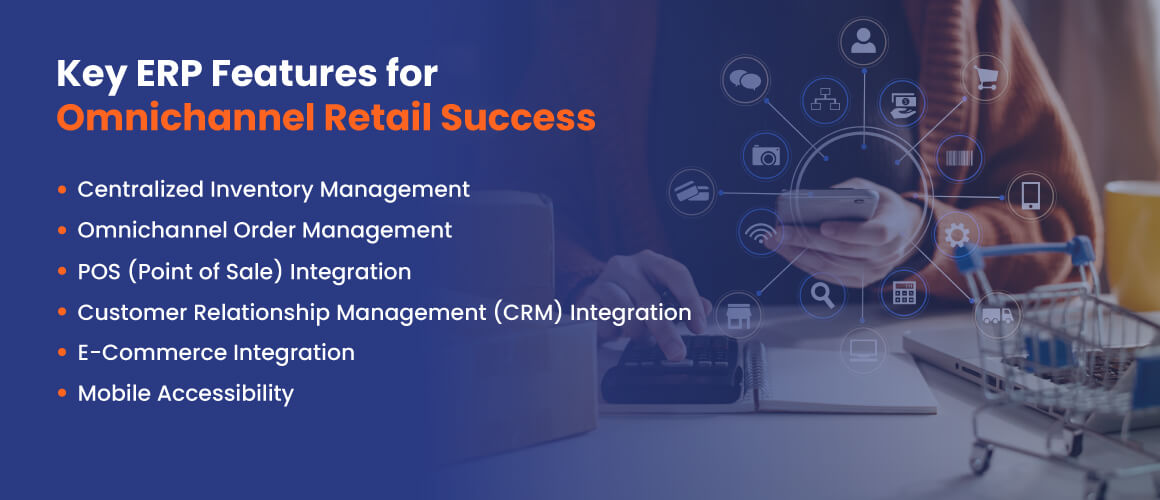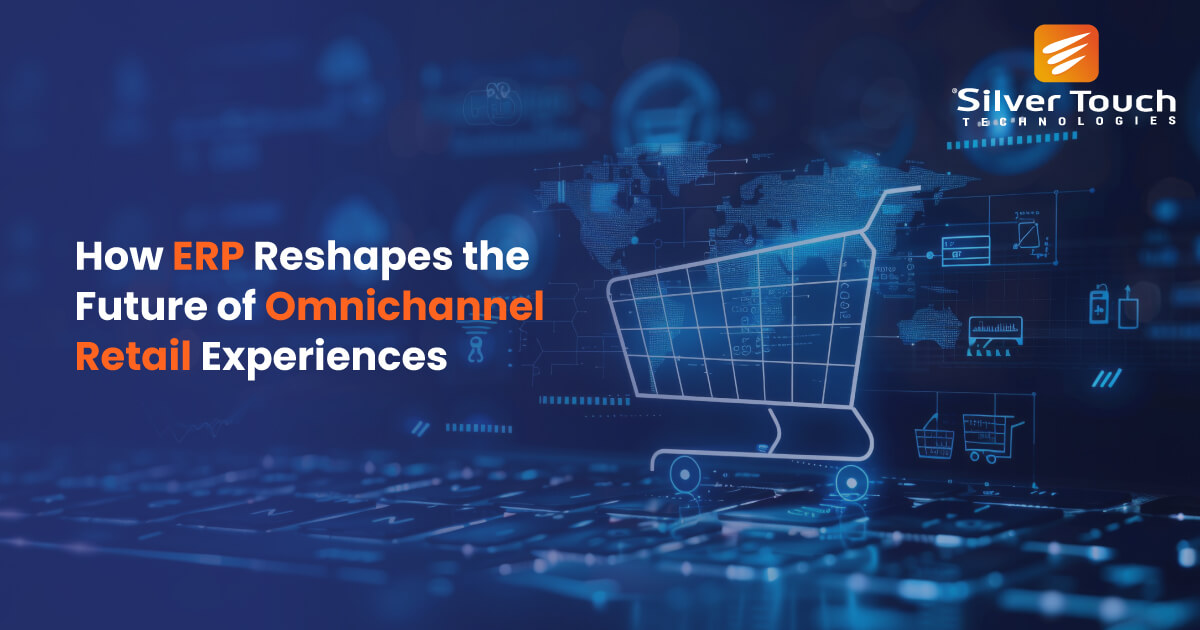The retail industry witnesses a paradigm shift from brick-and-mortar stores to omnichannel experiences. Tech-savvy shoppers expect a consistent experience across all the channels in this digital age. It is the reason an IDC survey has revealed that omnichannel shoppers have a 30 percent more lifetime value than shoppers who use a single channel. This shows the importance of omnichannel retail software.
Retailers have identified this trend and started integrating omnichannel retail as a vital strategy in their business. However, due to several reasons, many retailers struggle to implement this strategy in full swing. Here, ERP for omnichannel retail emerges as a game changer. It assists retailers to offer a seamless experience to customers across all available channels.
In this post, we will dig deep into the role of omnichannel ERP in the retail sector. We will also discuss the ways ERP for retail industry connects inventory, orders, and customers. Let’s start with the introduction of omnichannel retail.
Overview of Omnichannel Retail
Omnichannel retail is an advanced approach that aims to offer a seamless and consistent experience to customers across all available devices. Whether it is in-store experience or on mobile, social networks or in websites, omnichannel retail ensures a unified presence of your brand or products. This results in more customer loyalty through increased engagement.
The omnichannel retail experience is about the customer’s uninterrupted shopping journey from one platform to another. However, many retailers find it difficult to break down channel barriers. Inventory issues, inconsistent pricing, and fragmented data of customers are other hurdles in implementing omnichannel retail strategy. Here an omnichannel ERP lends a helping hand.
Let’s go through the role of a retail ERP in integrating omnichannel experience.
Role of ERP in Omnichannel Integration
ERP plays a vital role as a robust omnichannel retail software. Here is how it facilitates retailers in integrating omnichannel strategy-
Acts as the Central Hub
A retail ERP system serves as a central platform for collecting, consolidating, and processing data from all sales channels. It gives retailers a single view of their business and facilitates consistent operations.
Connects Everything
A feature-rich ERP for the retail sector can connect online stores to synchronize data related to products, pricing, and customers. Moreover, mobile apps can be connected to the ERP for giving updates to customers on the move.
Offers Real-time Data
An omnichannel ERP solution can provide retailers with real-time visibility into inventory levels and customer interactions. Retailers can make informed decisions regarding pricing and promotions by using these insights.
It is interesting to see how ERP can synchronize data related to inventory and orders while keeping customers at the core.
How ERP for Retail Synchronizes Inventory and Orders
Effective implementation of an omnichannel retail strategy requires a flawless synchronization of data related to inventory, orders, and customers. Here, ERP systems, with their advanced features, can work wonders by offering-
Inventory Synchronization
- ERP systems can maintain a centralized, real-time view of inventory across all locations
- The ERP system can update inventory counts automatically to prevent discrepancies
- ERP solutions can give accurate inventory information for optimizing stock levels and avoid stockouts
Order Management Synchronization
- ERP software can streamline order processing through the centralization of orders from all sales channels
- The retail ERP system can capture and manage online and in-store orders in a unified way
- ERP solutions are useful in managing returns and exchanges across different channels
Customer Data Synchronization
- ERP for retail industry can consolidate the customer’s data from all touchpoints for unification
- Retailers can offer personalized recommendations and better experiences to customers
- Advanced customer analytics in omnichannel retail software can assist retailers in making strategic decisions
This synchronization assists retailers to improve customer satisfaction and reduce operational costs over the period. It also increases sales and enhances the retailer’s efficiency of making decisions.
Specific Features of ERP for Omnichannel Retail

Retail ERP systems have specific features for enhancing omnichannel experiences. Here are some key features-
Centralized Inventory Management
This is a core feature of a retail ERP solution. It shows inventory levels across all channels and enables retailers to monitor stocks accurately. Moreover, it gives automated inventory updates based on the movement of stocks and assists retailers to optimize products at different levels.
Omnichannel Order Management
An omnichannel ERP has this feature to ensure the unification of order processing across all sales channels. It offers flexible order fulfillment options including pick up in-store and buy online. Moreover, this feature enables retailers to manage returns and exchanges efficiently.
POS (Point of Sale) Integration
This feature integrates all in-store POS systems seamlessly. It offers real-time synchronization of sales data with inventory updates. Retailers can keep consistent pricing and promote their offers or deals across in-store and online channels with the help of this feature.
Customer Relationship Management (CRM) Integration
The CRM integration is useful for unifying customer profiles with necessary data. It assists business persons to plan and execute personalized marketing campaigns. This feature can take care of loyalty programs and improve customer services significantly.
E-Commerce Integration
This is one of the most beneficial features of the retail ERP software. It displays the necessary data from online stores and marketplaces in real-time. It is capable of modifying the order and inventory updates instantly between eCommerce platforms and the ERP.
Mobile Accessibility
This is another major feature that facilitates retailers to get mobile access to ERP data and other functionality. Mobile POS capabilities can manage in-store sales and customer services, whereas customers can browse products, place orders, and get real-time status about their shipments using mobile apps.
All these features enable retailers to maintain consistency and personalized touch in offering seamless shopping experiences across all channels.
Concluding Lines
An ERP for omnichannel retail can synchronize data effectively to improve customer satisfaction and enable retailers to make informed decisions. It is fair to mention that an ERP for the retail industry plays a crucial role in implementing omnichannel experiences while addressing various challenges. Retailers need to get the right software to leverage these benefits.
Silver Touch Technologies is your trusted ERP solution provider. We assist you to streamline operations and grow your business with an advanced retail ERP system. Our experienced consultants suggest the most suitable ERP solution to address challenges and meet the requirements of your thriving retail business. Contact us to learn more about our omnichannel ERP for your company.



